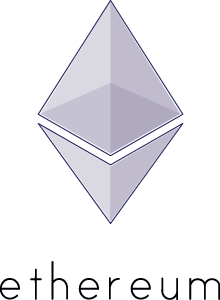Not known Factual Statements About Ethereum
Ethereum is very hot. Really incredibly hot. As I produce this, Ether has just strike the $a hundred mark. For this and various good reasons you'll find now legions of builders coming on the System. Many of them are beneath the mistaken impact that Ethereum has a single, and just one, language for sensible agreement improvement. I’m listed here to change that misapprehension.
Initially
Again when Vitalik, Jeff, Gavin and the rest ended up acquiring the beginnings of Ethereum, they knew they didn’t want to put in writing code immediately in assembler. The EVM, or Ethereum Virtual Machine, can be a quite simple VM website with only fundamental jumps and stack manipulation for system Command. But they also realized they couldn’t come up with an all-encompassing large-degree language in an acceptable time period. Subsequently, LLL was born. Due to the fact then, Solidity has taken in excess of as the preferred wise contract progress language.
I have appear below to not bury Solidity, but to praise it (to inversely paraphrase Mark Antony). Solidity is a superb Resolution to a tricky issue: How can we catch the attention of frequent developers to an entirely new System? The answer is, give them a technique that's common to them. This ends in a minimized on-boarding time; a developer can start out creating good contracts A lot faster if they’re informed about any C-like language.
A definition
LLL stands for Low-amount Lisp-like Language. I am aware a number of you only threw up a little with your mouth within the mention of Lisp, but be sure to bear with me. For improved or even worse, LLL is actually a Considerably simpler language than Lisp. Indeed, it utilizes These awful parentheses but trust me Once i say that you become accustomed to them.
Justification
Now you could request why anyone would desire to use anything at all but Solidity, significantly less a language that looks like Lisp. Properly, LLL confers several advantages. LLL — as its title suggests—is really a lower-degree language than Solidity. This manifests by itself in a number of strategies.
Initial, the developer has direct entry to memory and storage. This allows you to prepare your agreement information in any way you like, optimizing for quite possibly the most successful obtain. Second, you might have complete usage of all EVM opcodes. When compiled, these LLL operators translate directly to EVM opcodes, giving your agreement electrical power and brevity. Third, and growing on the brevity concept, LLL contracts compile right down to Substantially lesser binaries than Solidity contracts. Inside a the latest reimplementation I did, the LLL binary ended up 70% lesser in comparison to the Solidity equal.
Another point to notice: the assembly code produced by LLL is so concise and straightforward that it seems like it’s been coded by hand in assembly. In distinction, Solidity’s assembly output is actually a wild mess of redundant opcodes and odd jumps.